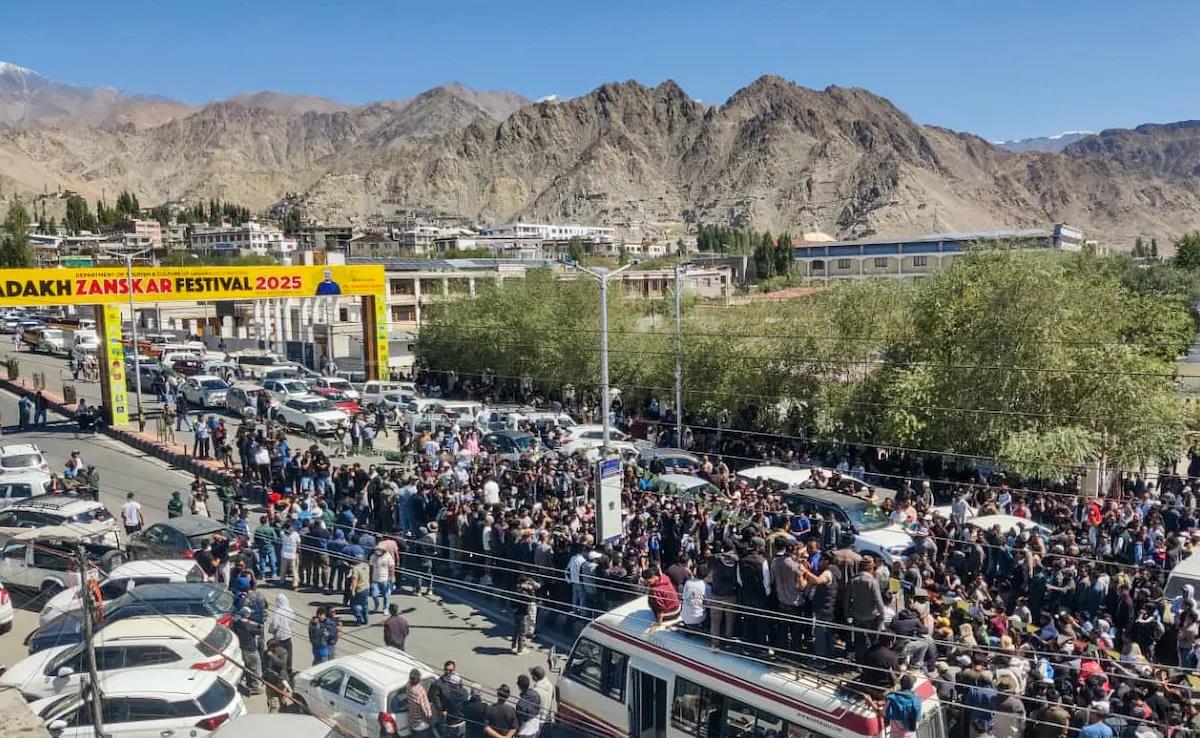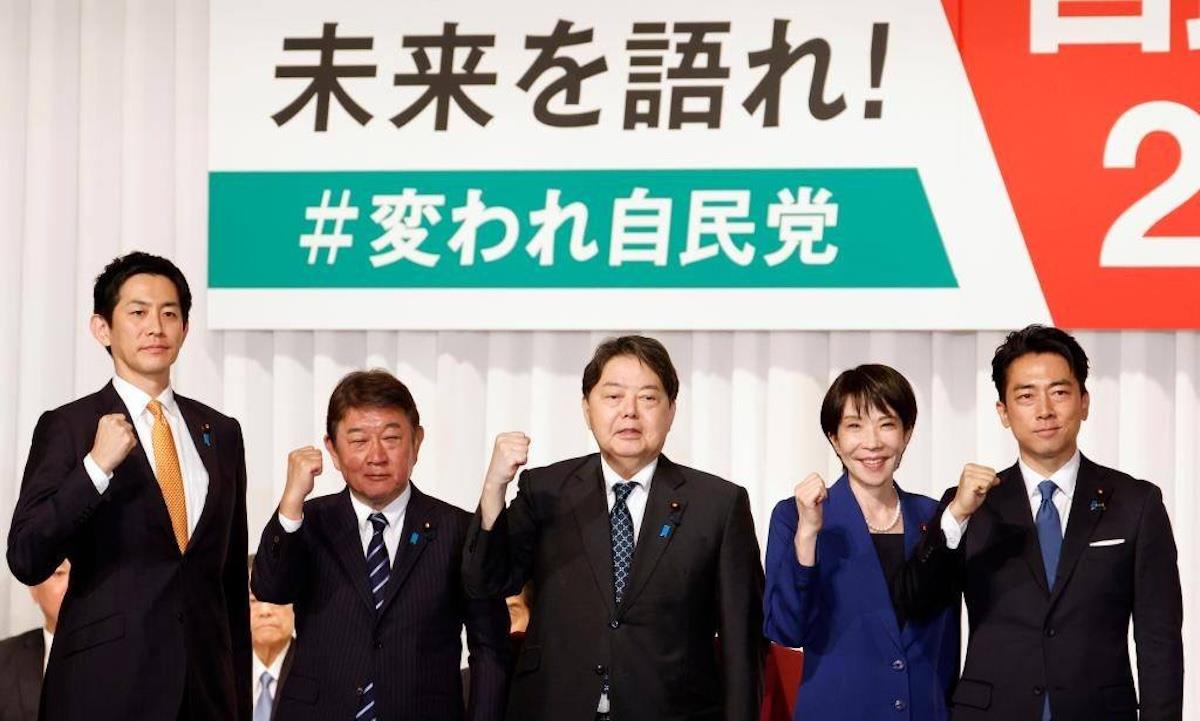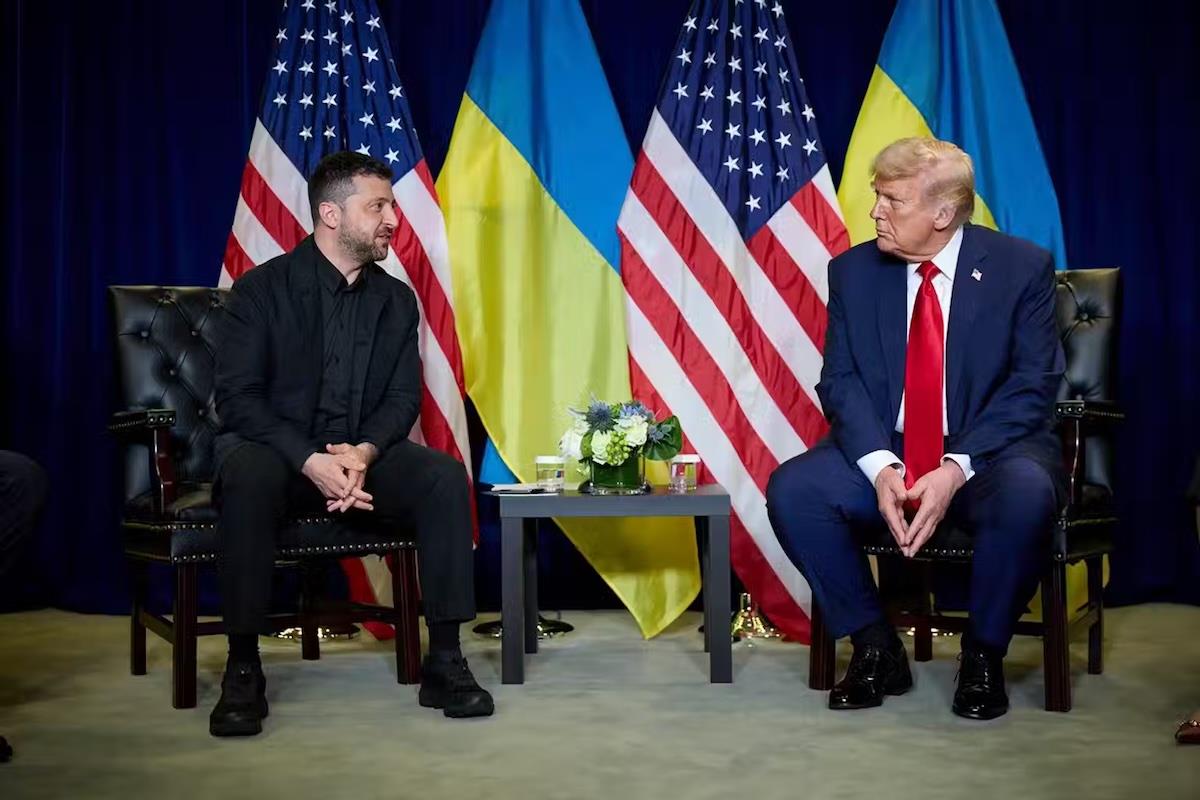
Europe Must Step Up To Face Russian Aggression Alone
This came with the message that Europeans will need to be in the driver's seat to make this happen . According to Trump , a Ukrainian victory depends on“time, patience, and the financial support of Europe and, in particular, NATO.”
The only US commitment is“to supply weapons to NATO for NATO to do what they want with them.” Most tellingly, Trump signed off from his Truth Social missive with:“Good luck to all!” This is perhaps the clearest indication yet that the US president is walking away from his efforts to strike a peace deal.
It also suggests that he has given up on a separate deal with his Russian counterpart, Vladimir Putin. But this is where the good news ends – and where the European-led coalition of the willing will need to deliver security and stability for the continent in an ever more volatile environment.
After several weeks of Russian incursions into NATO airspace, drones – thought highly likely to be linked to Russia – twice disrupted Danish airspace in the vicinity of Copenhagen airport . It felt like a presentiment of the dystopian drone wars predicted by Ukrainian President Volodymyr Zelensky in his speech at the UN general assembly in New York on September 24.
Putin's continuing provocations are a brazen challenge to Kyiv's European allies. At the heart of this coalition of the willing, the European Union certainly has demonstrated it is willing to flex its rhetorical muscles to rise to this challenge.
Latest stories
Asia's youthquake: India's Gen Z protests are boiling over

Japan's LDP leadership race, so far, is a sluggish campaign

Trump in Truth Social manifesto offloads Ukraine mess on Europe
EU institutions in Brussels have never left any doubt about their determination that Russia's war of aggression against Ukraine“needs to end with a just and lasting peace for Ukraine”, as Ursula von der Leyen, the EU commission president, put it most recently in her state-of-the-union address .
Beyond rhetoric, however, the coalition of the willing is facing a number of potential problems. Individually, none of them is insurmountable, but taken together they illustrate the unprecedented challenge Kyiv's European allies are facing.
Coalition confusionTo begin with, the coalition of the willing is not a coherent body. Its membership includes members of NATO and the EU, as well as Australia, New Zealand, Japan and South Korea. But the United States is not among their number.
It grew from eight countries plus the EU and NATO in February , to 33 participants in April , and 39 in September . Its relationship with the 57-member Ukraine Defense Contact Group of countries supporting Kyiv with military equipment, which held its 30th meeting in early September, is not entirely clear.
The lack of coherence in membership is mirrored by different levels of commitment, whether that's the willingness to deploy a reassurance force after a ceasefire in Ukraine – or the capacity.
It's also not entirely clear whether the leaders of the EU and NATO are speaking for all members of their organizations. Among EU and NATO members, Hungary and Slovakia , for example, have taken ambiguous stances when it comes to defending Europe against Russia.
These different levels of commitment also reflect partially conflicting priorities. European members of NATO are deeply – and not wrongly – concerned about US abandonment . Add to that their fears of a disastrous trade war and placating Donald Trump becomes a priority.
Doing so by buying US arms may please Trump and plug gaps in Europe's ability to supply Ukraine . But it is perhaps not the best way of ensuring the urgently needed development of the independent European defense-industrial base .
Trump's return to the White House swiftly ushered in the end of US largesse in support of Ukraine. Europeans have only partly filled that gap, with Germany taking the lead and the EU mobilizing over €10 billion (£8.7 billion) in its current budget to 2027, with the aim to supplement efforts by member countries.
But it's not clear how long these efforts will be sustainable in light of inflation and domestic spending pressures. France's public finances are in distress , while Spain has openly defied NATO's 5% spending target.
Europe needs to step up – fastPart of the solution to these problems would be much swifter defense-industrial cooperation across the coalition , including with Ukraine . Over time, this could help to build the indigenous defense-industrial capacity needed to produce military equipment at the scale needed.
But making up for critical gaps in manpower , dealing with the Russian drone threat , strengthening air defenses and long-range strike capabilities and replacing the potential loss of US intelligence support will not happen overnight.

Sign up for one of our free newsletters
-
The Daily Report
Start your day right with Asia Times' top stories
AT Weekly Report
A weekly roundup of Asia Times' most-read stories
Individual countries and the various multilateral forums in which they cooperate will need to decide how to balance three only partially aligned priorities. Europe – whether defined as EU, European NATO members or the core of the coalition of the willing – urgently needs to upgrade its defenses. Developing a European defense-industrial capacity at scale is integral to this.
Europeans also need to keep the US engaged as much as possible, literally by buying Trump off, because they currently lack critical capabilities that will take time for them to develop themselves. And while building better defense capabilities for themselves they will need to keep Ukraine in the fight against Russia to keep it from losing the war.
Europe needs to increase the money, develop the military muscle, and build decision-making mechanisms that are not mired in procrastination to win the proxy war that the Kremlin forced on Ukraine and its allies. To do so will ensure that Europeans are best placed to prevent Russia from broadening its war against Ukraine into a full-blown military confrontation with the west.
Richard Whitman is a member of the Conflict Analysis Research Center, University of Kent ; and Stefan Wolff is a professor of international security, University of Birmingham .
This article is republished from The Conversation under a Creative Commons license. Read the original article .
Sign up here to comment on Asia Times stories Or Sign in to an existing accoun
Thank you for registering!
An account was already registered with this email. Please check your inbox for an authentication link.
-
Click to share on X (Opens in new window)
X
Click to share on LinkedIn (Opens in new window)
LinkedIn
Click to share on Facebook (Opens in new window)
Facebook
Click to share on WhatsApp (Opens in new window)
WhatsApp
Click to share on Reddit (Opens in new window)
Reddit
Click to email a link to a friend (Opens in new window)
Email
Click to print (Opens in new window)
Print

Legal Disclaimer:
MENAFN provides the
information “as is” without warranty of any kind. We do not accept
any responsibility or liability for the accuracy, content, images,
videos, licenses, completeness, legality, or reliability of the information
contained in this article. If you have any complaints or copyright
issues related to this article, kindly contact the provider above.


















Comments
No comment